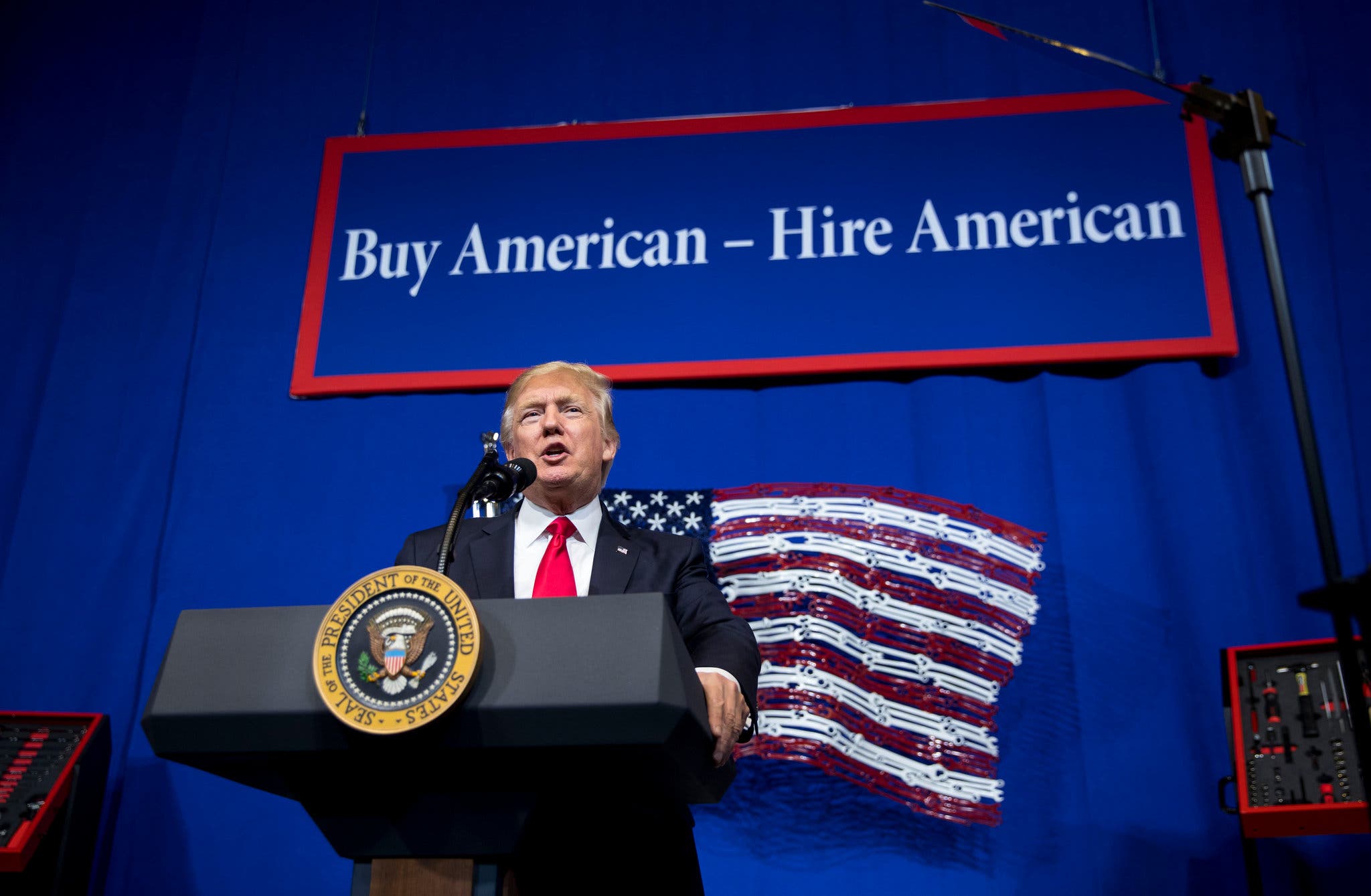Trump Administration Considers Tariffs On Commercial Aircraft And Engines

Table of Contents
Potential Impacts on the US Aviation Industry
The proposed tariffs, while ostensibly designed to shield American aircraft manufacturers like Boeing from foreign competition, presented a complex web of potential consequences for the US aviation industry. The threat of retaliatory tariffs from major trading partners significantly dampened the potential benefits.
-
Job Security Concerns: Although the intention was to boost Boeing's production and employment, the tariffs could have led to job losses in other sectors. Airlines, for instance, faced higher aircraft costs, potentially impacting their expansion plans and employment levels. Furthermore, suppliers of components to aircraft manufacturers could have suffered due to reduced demand.
-
Increased Aircraft Costs: The imposition of tariffs would have undeniably increased the cost of both aircraft and engines. This would have directly impacted airlines, forcing them to absorb these costs or pass them on to consumers through higher airfares, potentially reducing air travel demand.
-
Supply Chain Disruptions: The aviation industry operates on intricate global supply chains. Tariffs would have introduced significant friction, delaying production schedules, increasing costs, and potentially causing shortages of essential components. This ripple effect could have extended far beyond US borders.
-
Impact on Smaller Aircraft Manufacturers: Smaller US aircraft manufacturers, often reliant on imported components or export markets, would have been disproportionately affected. Their smaller margins and reduced ability to absorb increased costs would have put them at a competitive disadvantage.
International Trade Relations and Retaliation
The Trump administration's consideration of tariffs on commercial aircraft and engines severely strained international trade relations. The prospect of a full-blown trade war between the US and the EU, both major players in the global aviation market, was a significant risk.
-
EU Retaliation: The EU, home to Airbus, Boeing's chief competitor, was expected to retaliate with tariffs on US goods. This could have involved targeting iconic American products, escalating the conflict and harming numerous sectors.
-
WTO Disputes: The imposition of tariffs could have easily triggered disputes at the World Trade Organization (WTO). WTO proceedings are lengthy and complex, leading to years of legal battles with uncertain outcomes.
-
Damage to International Cooperation: The move risked undermining vital international cooperation on crucial aspects of aviation, such as safety standards and environmental regulations. This could have jeopardized ongoing efforts to improve global aviation safety and sustainability.
-
Global Economic Uncertainty: The uncertainty surrounding the potential tariffs created instability in the global economy, making it challenging for businesses to make sound investment decisions and hindering economic growth.
The Political Context and Justification for Tariffs
The administration's consideration of tariffs stemmed from its broader trade policy focused on protecting American industries and jobs. However, the economic and geopolitical justifications were complex and often debated.
-
National Security Arguments: The administration might have invoked national security arguments to justify the tariffs, claiming that reliance on foreign-made aircraft parts posed a threat to national security.
-
Trade Deficit Concerns: Addressing the US trade deficit with countries producing aircraft and engines was another stated objective. However, the effectiveness of tariffs in achieving this goal is often debated.
-
Domestic Manufacturing Support: A central motivation was to bolster domestic aircraft manufacturing and safeguard jobs within the US aviation sector. This involved protecting Boeing's market share and competitiveness.
-
Negotiating Leverage: The threat of tariffs could have been used as a bargaining chip in broader trade negotiations with other countries.
Long-Term Effects and Unintended Consequences
The long-term consequences of the Trump administration's consideration of tariffs on commercial aircraft and engines remain a subject of ongoing debate and analysis, but several potential effects stand out.
-
Reduced Global Trade: The tariffs could have dampened global trade in the aviation sector, stifling innovation and hindering economic growth. A less competitive market would have harmed consumers and producers worldwide.
-
Market Distortion: Tariffs often distort markets, creating inefficiencies and hindering competition. This could have led to higher prices and reduced choice for consumers.
-
Price Increases for Consumers: The most immediate and noticeable impact was likely the increase in air travel costs for consumers. This could disproportionately affect low-income individuals and limit access to air travel.
-
Shift in Global Supply Chains: Companies might have been forced to reconfigure their global supply chains to circumvent tariffs, resulting in long-term shifts in production and manufacturing locations.
Conclusion:
The Trump administration's consideration of tariffs on commercial aircraft and engines showcased the intricate relationship between trade policy, national interests, and global relations within the aviation industry. While the stated goal was to protect US manufacturers, the potential for significant negative consequences—including retaliatory tariffs, higher consumer prices, and supply chain disruptions—was undeniable. Understanding the complexities of such trade policies is crucial for all stakeholders. Continued analysis of the long-term impacts of the Trump administration's trade policies on commercial aircraft and engines, and similar sectors, is vital for informed future decision-making.

Featured Posts
-
 New Scholarship Fund Aims To Support Aspiring Racers The Rahal Initiative
May 11, 2025
New Scholarship Fund Aims To Support Aspiring Racers The Rahal Initiative
May 11, 2025 -
 5 Key Dos And Don Ts Succeeding In The Private Credit Market
May 11, 2025
5 Key Dos And Don Ts Succeeding In The Private Credit Market
May 11, 2025 -
 Netherlands Addresses Asylum Challenges New Detention And Area Ban Policies
May 11, 2025
Netherlands Addresses Asylum Challenges New Detention And Area Ban Policies
May 11, 2025 -
 Kostenoptimierung In Asylunterkuenften Potenzial Von 1 Milliarde Euro
May 11, 2025
Kostenoptimierung In Asylunterkuenften Potenzial Von 1 Milliarde Euro
May 11, 2025 -
 World War Hulk Why Fans Want Henry Cavill As Wolverine
May 11, 2025
World War Hulk Why Fans Want Henry Cavill As Wolverine
May 11, 2025
